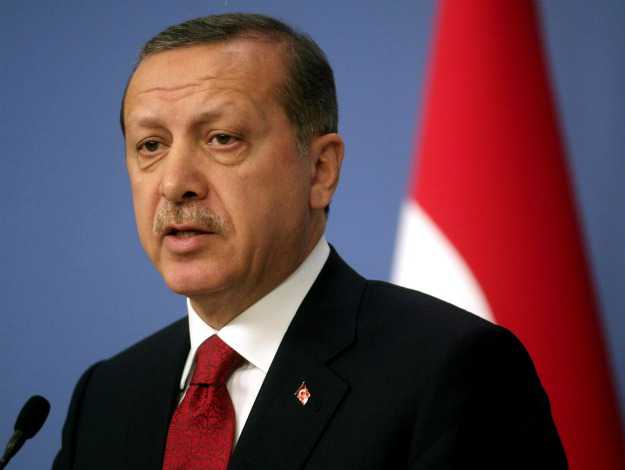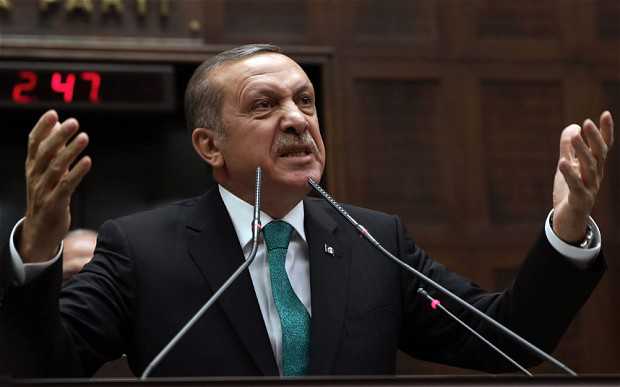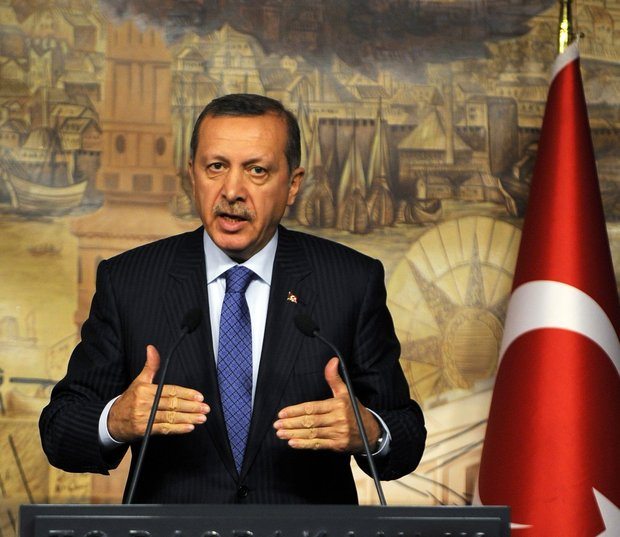Posted By Mohammed Ayoob Wednesday, November 9, 2011 – 4:52 PM Share

Any time spent in Turkey and one cannot help but be taken in by the country’s economic dynamism and political vibrancy that is unique in the region it inhabits. With a 9 percent growth rate in its GDP in 2010, Turkey has become the fastest growing economy in the OECD and is projected to remain so until 2017. Its commitment to democratic governance was demonstrated in the elections earlier this year that kept the ruling AKP in power with almost 50 percent of the votes. That the Turkish democratic process has become irreversible was confirmed soon thereafter by the fact that the resignation of Turkey’s top four generals in an effort to unnerve and destabilize the civilian government hardly created a stir in the country. Even a couple of years ago such a deliberately contrived crisis could have provided the military brass with an excuse for staging a coup.
In the context of this upbeat picture, which has turned Turkey into a model for Arab democrats next door, the festering Kurdish issue has gained greater saliency both because of increased acts of terrorism by the PKK and, more importantly, because it strikes a highly discordant note in an otherwise bright scenario. The recent escalation of terrorist activity by the PKK can in part be attributed to its declining political appeal among Turkey’s Kurdish citizens who now enjoy cultural and linguistic rights that had been denied to them by the hyper-nationalist Kemalist elite in the first 80 years of the Republic’s existence. The PKK leadership feels that it is in danger of becoming politically irrelevant and has, therefore, escalated terrorist activity to prove that no solution to the Kurdish problem is possible without its participation.
Turkey’s economic buoyancy has also ensured that large segments of the Kurdish population both in the predominantly Kurdish areas in the east and southeast, as well as in the huge Kurdish diaspora in western and central Turkey (Istanbul is the largest Kurdish city with a reported Kurdish population of 2 million), now have a major stake in the well-being of the Republic. Finally, the rise in PKK’s terrorist activities can be attributed also to the ultra-nationalist backlash amongst a section of Turkish opinion that has put the AKP government on the defensive and forced it to slow down the reform process that could ensure further rights for the Kurdish minority extending beyond the cultural and linguistic spheres. The AKP’s foot-dragging on the issue has led to Kurdish disappointment and in some cases increased sympathy for the PKK fighters after an initial period of rising expectations bordering on euphoria.
Above all, it seems that the PKK’s recent activities are related to the accelerating process of constitutional reform set in motion by the AKP government after the recent elections. A Preparatory Constitution Commission of 12 members — three each from the four parties represented in parliament including the Kurdish Peace and Democracy Party (BDP) — has been set up to produce a draft constitution to replace the military supervised and crafted 1982 constitution that can be debated in parliament and among the general public. The issue of Kurdish identity (or rather how the identity of Turkish citizens is to be defined in the new constitution) will be one of the main subjects to be discussed by the commission. If, despite the differences on this issue, progress is made toward greater acceptance of a multi-ethnic definition of the Turkish identity, it would take the wind out of the PKK sails.
The pro-Kurdish BDP, which has 36 members in the 550-member parliament (although six of them are currently in jail allegedly for supporting the PKK), was expected to be a major player in the constitution drafting process. However, it seems to have become hamstrung by its refusal to distance itself from the PKK and its leader Abdullah Ocalan, who is currently imprisoned in Turkey. In conversations BDP leaders repeat ad infinitum that no solution can be found without the concurrence of Ocalan and the PKK fighters who they refer to as “the young men in the mountains”. However, this formula is unacceptable to the other Turkish parties who consider PKK to be a terrorist organization. The BDP, which was beginning to be increasingly perceived as the legitimate face of Kurdish sub-nationalism in Turkey, has drastically reduced its effectiveness as the Kurdish interlocutor in constitutional talks by surrendering its autonomy to the PKK and appearing to many to be nothing more than the latter’s political arm.
Moreover, BDP leaders constantly repeat the formula that no solution to the Kurdish problem can be found except on the basis of “democratic autonomy”, which they stubbornly refuse to define. When pressed they say that this must be negotiated by the government with Ocalan. While the Turkish government may not be totally averse to such negotiations, as recent reports of talks between MIT, Turkey’s intelligence agency, and PKK leaders have revealed, it would be impossible for any Turkish government to publicly admit that it has been negotiating with what it terms a terrorist organization and its leader. The BDP could have adopted the role of acting as the primary Kurdish interlocutor and negotiating an end to the conflict if it had had the political courage to distance itself from PKK. Unfortunately, it has not been able to grasp this opportunity.
The BDP’s refusal to define “democratic autonomy” is mirrored by large segments of the Turkish elite, including many in the ruling AKP, who refuse to countenance any derogation from the model of the unitary state and the myth of a monolithic Turkish identity imposed by the Kemalist elite since the early years of the Republic, in defiance of the multi-ethnic nature of Turkish society. It is time that the AKP, as well as the main opposition party, the CHP, which is the standard bearer of Kemalism, seriously reconsider their stance on the issue of a unitary mono-ethnic state. Federalism or quasi-federalism is usually the best antidote to separatism. Imposing a contrived mono-ethnic identity and a unitary state remote from the concerns of peripheral areas and populations normally aggravates, rather than resolves, separatist problems.
A federal system is not necessarily antithetical to a strong center and need not come at the latter’s expense. In fact, as the experience of successful federations from the United States to India demonstrate, a federal system bolsters the legitimacy of the central government in the long run and aids in the process of nation-building, rather than hindering that process. As these examples demonstrate, trappings of autonomy are often more important than its content. Furthermore, they also reveal that federalism need not have an economic rationale for it to be successful. A federal system is basically a political tool utilized to respond to ethnic and geographic diversity even if it means that more prosperous regions must continue to subsidize the poorer parts of the country. In the final analysis, this is a small sacrifice to maintain national unity.
The solution to Turkey’s Kurdish conundrum may, therefore, lie in some form of devolution of powers to regional entities. It will help both in the consolidation of democracy in the country as well as give greater legitimacy to a central government whose political and economic record under the AKP is in other ways extremely impressive. However, in order to achieve this goal the Turkish elite and the AKP government must break decisively from the outmoded thinking of the Kemalist past and show a degree of political flexibility that has unfortunately been in short supply thus far. Furthermore, they will have to do so even as PKK terrorism increases in the short-term, more as an act of desperation rather than of carefully thought political strategy. Prime Minister Erdogan has the stature, legitimacy, and charisma to make this decisive break from the Kemalist past. If he does so, it will demonstrate that he is a real statesman and not merely an extraordinarily skillful politician.
Mohammed Ayoob is the university distinguished professor of international relations at Michigan State University and adjunct scholar at the Institute for Social Policy and Understanding.





